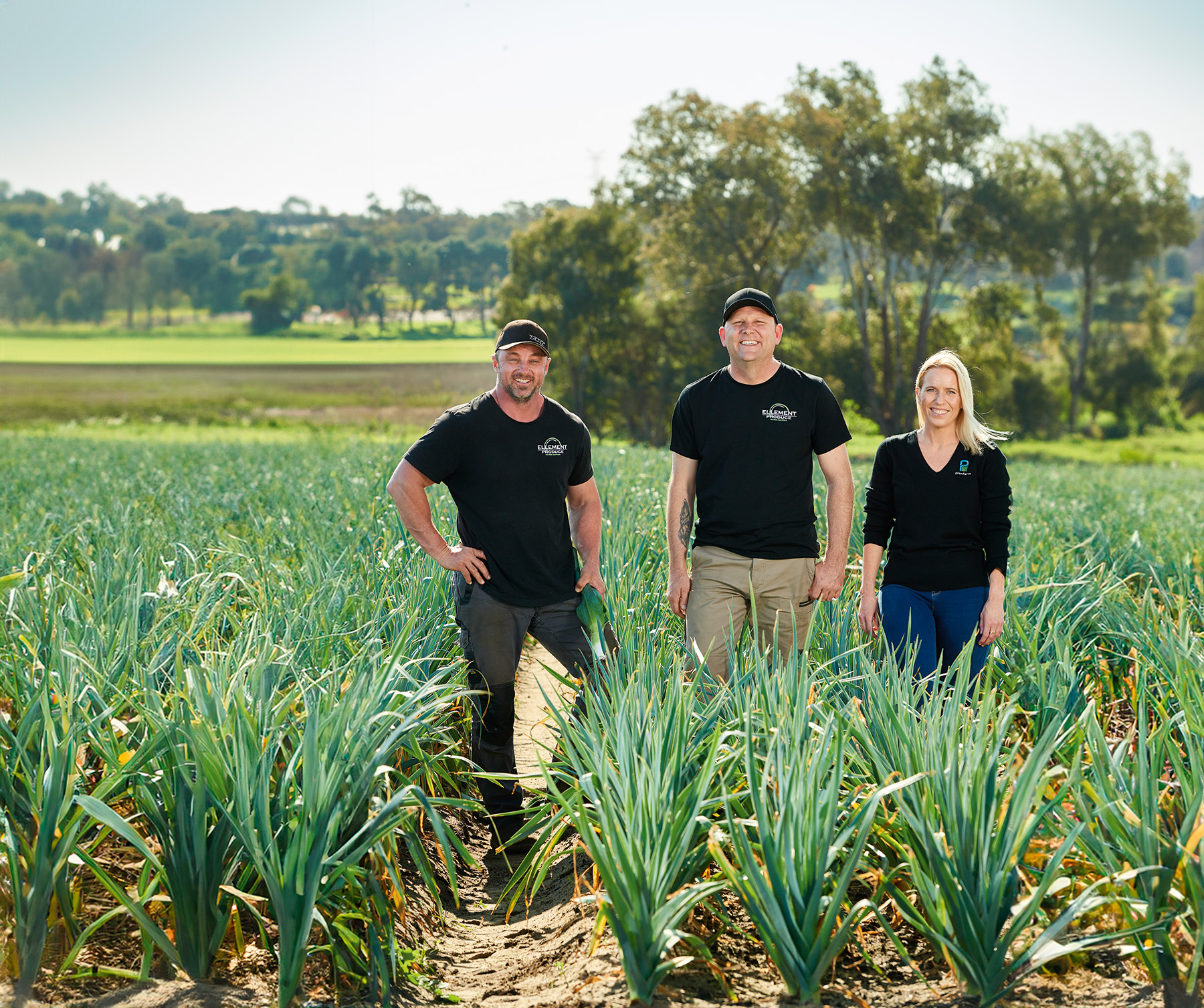Data for Success: the Level Up Hort Benchmarking Program
David Ellement is a vegetable farmer in Western Australia who for the past five years has been in the West Australian pilot business analysis and benchmarking program, Building Horticulture Business Capacity Program (BHBC). He and his brother Ben run Ellement Produce, a small-to-medium-sized business. They took over the family business as a partnership when their parents retired.
“Ben looks after everything off the concrete, and I look after everything on the concrete,” explains David.
With a background in business management and consultancy to growers, including chief executive officer of the WA Wine Industry and 15 years as WA’s vegetable industry development officer, he is well acquainted with accounting systems, spreadsheets and understanding figures. On the eve of the launch of the Hort Innovation-funded national Level Up Hort program, we ask him how the program impacted his business.
When did you enter the BHBC Program?
I entered the pilot program in the second year of its six-year duration (2018). I was actually a little bit apprehensive when the program was first announced. Handing over your own information and having your business figures looked over by external eyes is quite confronting.
What has been the biggest win in being part of the program?
It sharpened us. It really made us make some hard decisions. All our cards were put on the spreadsheet. We could see where we were making money, where we were breaking even, where we were doing well and patterns emerged. We could see a clear path forward in the figures. It made us focus.
It’s been described as a 3D view of your business where you can see the opportunities to drive your business forward…
That is correct, and it’s definitely done that for us. I probably spend more time on finding those one-percenters to drive our business forward. And I probably always have. I run a lot of spreadsheets; I measure everything. It’s just part of my business background. But this program gives us more rigour. It helps tie the whole picture together: the fixed costs of your business, the variable costs, the cost of all your lines, the return per hectare. It really creates that big, holistic picture that allows you to find where you need to invest and how you need to address different areas of your business. We could identify our highest priorities to our lowest priorities.
How has it impacted how you run your business?
It gave us a chance to analyse every crop in detail – our production across our entire farm throughout the year. As we are just-in-time suppliers, we don’t always take a pause and reflect on our business as required. There is no stop in vegetable growing. What this program does is make us pause once a year, analyse our business in detail and set up our business for the next 12 months.
How did you feel about your data going into an industry-wide analysis?
It was one of the big concerns for us. We didn’t want our data handed over to other growers. But the way in which the data is collected and collated, it stays completely confidential. So, our intellectual property is protected, which I think is very, very important.
How important is the benchmarking side of the program?
One of the biggest things for us is setting ourselves targets and objectives. So each year we sit down with our consultant and look at our benchmarks and those of the industry. We talk over where we are at as a business, where the wider industry is at and what marks we want to hit. This process defines our goals and objectives.
What would be your tip for how other businesses should approach the program?
If you do get involved, you need to be involved. Don’t sit on the sideline. I didn’t actually put in the energy I needed to during the first year. I pretty much just sat back and gave the consultants the data I had. When the consultant came back and went through the analysis, it was better than I thought it was going to be. So during the second year, I provided more quality data. Then I got even more out of it. I do regret that I didn’t do enough hard work the first year, and I missed an opportunity.
Having gone through the program is it something you will continue with?
Yes, we’re continuing with it. We made that decision pretty quickly. We’re out of the fully funded phase now in the BHBC program. We now pay a fee for that service, but we see value in it and it is viable. We wouldn’t put our money into it unless we thought there was going to be a benefit. Level Up Hort is a fully funded national program over five years, so that’s a huge win for the growers entering that program.
For more information, visit www.leveluphort.com.au or contact project lead Steff Carstairs on 0428 712 852, steff@planfarm.com.au.
This multi-industry project is a strategic levy investment in the Hort Innovation Onion and Vegetable Funds under Project Number MT22009.

